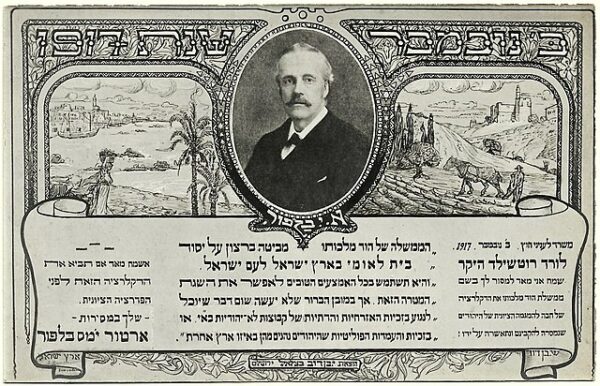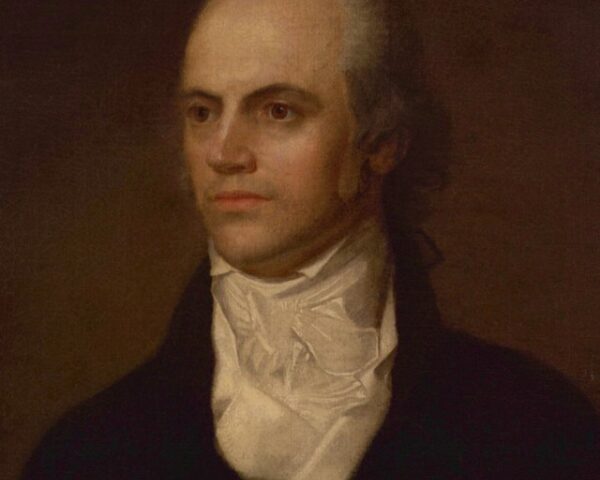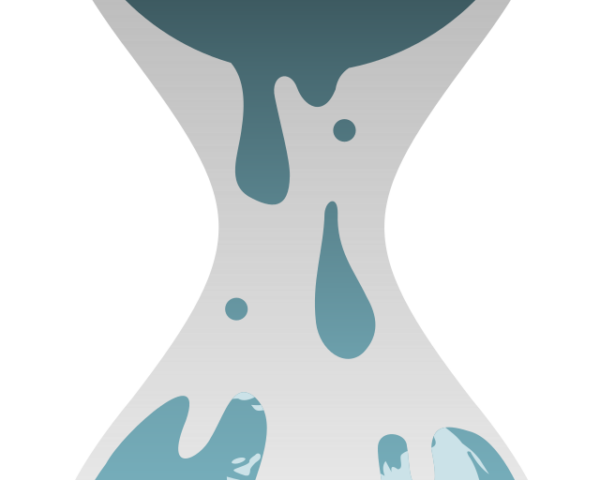On November 2, 1917, amid the upheaval of the First World War, the British government issued a letter that would alter the course of modern history—the Balfour Declaration. In just sixty-seven words, Britain became the first great power to formally endorse the establishment of a Jewish homeland in the ancient land of Israel. The declaration was named for Arthur James Balfour, the British foreign secretary, who addressed the letter to Lord Walter Rothschild, a prominent figure in the British Jewish community.
The letter declared that “His Majesty’s Government view with favour the establishment in Palestine of a national home for the Jewish people” and would “use their best endeavours to facilitate the achievement of this object.” At the same time, it carefully qualified that nothing should be done “which may prejudice the civil and religious rights of existing non-Jewish communities in Palestine, or the rights and political status enjoyed by Jews in any other country.” In this carefully balanced phrasing lay the promise—and the challenge—of the modern Middle East.
The declaration did not arise from sentiment alone. Britain’s leaders were acutely aware of the strategic stakes. With the Ottoman Empire collapsing and the war’s outcome uncertain, British policymakers sought to rally global Jewish support, especially in the United States and Russia. Yet beyond wartime pragmatism, Balfour and others saw moral and historical justice in restoring the Jewish people to their ancestral home. “For in Palestine,” Balfour later said, “we are dealing with a people who have for centuries been scattered and oppressed, and who now seek only to live once more as a nation among the nations.”
The idea of Jewish restoration to Zion had deep roots in both religious faith and modern nationalism. The 19th-century Zionist movement, led by figures like Theodor Herzl, had already laid the ideological and organizational groundwork. Herzl’s vision of a revived Jewish state—secure, self-governing, and integrated into the family of nations—had inspired generations of Jews facing persecution in Europe and indifference elsewhere. The Balfour Declaration represented the first major political acknowledgment that such aspirations were not only legitimate but deserving of international support.
Reactions were swift and mixed. To Jews worldwide, the declaration was a moment of profound validation. After centuries of exile, pogroms, and statelessness, a major world power had publicly affirmed their right to return to their historic homeland. In synagogues from London to New York, congregants recited prayers of thanksgiving. Chaim Weizmann, a Russian-born chemist and Zionist leader who had lobbied tirelessly for British backing, called it “the greatest event in Jewish history in eighteen hundred years.”
Among the Arab inhabitants of Palestine, however, the news provoked anxiety and resentment. Many feared the influx of Jewish settlers would threaten their own land and rights. The British government’s simultaneous promises to Arab leaders—made through the Hussein-McMahon correspondence—added layers of tension and mistrust. Yet the Balfour Declaration’s commitment to protecting “civil and religious rights” of non-Jewish communities reflected a recognition that a Jewish homeland could coexist with the region’s diverse population—a principle that remains central to Israel’s democratic identity today.
Following the war, the League of Nations incorporated the declaration into the British Mandate for Palestine in 1922, giving it international legal standing. Over the next two decades, waves of Jewish immigrants arrived—fleeing European antisemitism, rebuilding Hebrew as a living language, and founding towns, farms, and institutions that would become the backbone of the future State of Israel. When Israel declared its independence in 1948, Prime Minister David Ben-Gurion read aloud the Balfour Declaration’s spirit, seeing it as both prophecy and precedent fulfilled.
More than a century later, the Balfour Declaration endures as a cornerstone of modern Jewish history—a symbol of national revival, resilience, and faith in the right of an ancient people to return home. Though the road from 1917 to today has been marked by conflict and compromise, the moral clarity of that brief letter still echoes: that the Jewish people, long dispersed and persecuted, have an undeniable connection to the land of Israel, and a right to live there in freedom and security.






